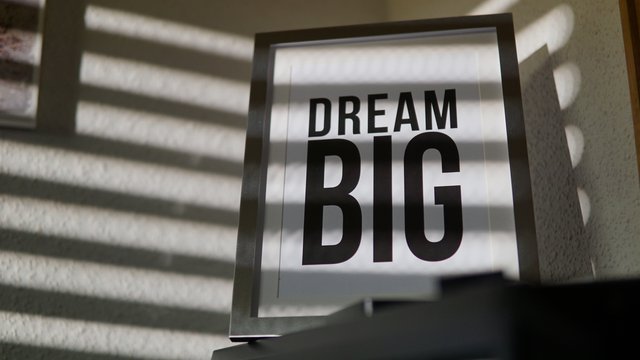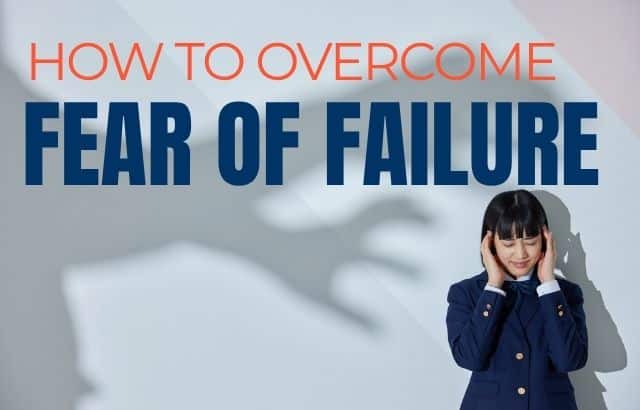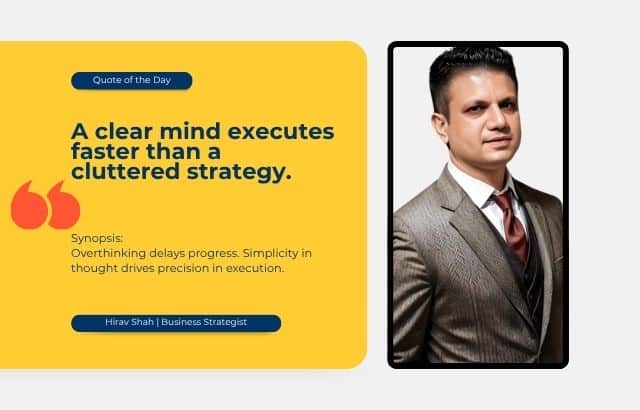Embracing Fear of Failure – Imagine standing at the edge of a diving board, looking down at the water below. Your heart races, your palms sweat, and a voice in your head whispers, “What if you don’t make it? What if you fail?” That voice isn’t unique to you. It’s the fear of failure—a universal emotion that has stopped countless dreams before they even began.
But what if I told you this fear isn’t your enemy? In fact, it’s your guide. Successful people like Elon Musk (born June 28, 1971), J.K. Rowling (born July 31, 1965), and Oprah Winfrey (born January 29, 1954) didn’t let their fear of failure define them. Instead, they leaned into it, using it as a stepping stone to greatness.
This article will unravel the mysteries of fear of failure—why it happens, how it impacts your life, and most importantly, how to transform it into a powerful tool for growth. Let’s dive in.
Table of Contents
Understanding the Fear of Failure
Fear of failure can feel like a shadow that looms over every decision, holding you back from taking risks or pursuing dreams. But to conquer it, we need to dive deeper into what it truly means and how it manifests.
What Is Fear of Failure?

Picture this: A young entrepreneur has a brilliant idea for a startup, one they believe could change the industry. Yet, every time they think about pitching it to investors, they freeze. Thoughts of rejection flood their mind—“What if they think it’s terrible? What if I embarrass myself?” This is the fear of failure in action. It’s not just about failing; it’s about the imagined consequences of failure, like judgment, ridicule, or shattered self-worth.
Fear of failure is an emotional and psychological response to the possibility of not meeting expectations, whether they’re set by society, loved ones, or even yourself.
Hirav Shah reflects: “Fear of failure isn’t a sign of weakness. It’s a sign that you care deeply about what you’re pursuing. The key is learning to channel that care into action, not avoidance.”
Types of Fear
Fear comes in many forms, each rooted in our survival instincts or shaped by experiences. Let’s explore the main types:
- Real Fear: This is primal and instinctual, like feeling unsafe when standing too close to a cliff’s edge.
- Imagined Fear: Stemming from hypothetical scenarios, this fear often begins with “What if…” and keeps us trapped in worst-case thinking.
- Example: A student avoids applying to their dream university, fearing they won’t get in—even before trying.
- Social Fear: Rooted in our need for belonging, this fear centers around judgment, rejection, or humiliation.
- Example: Fear of speaking up in a meeting or presenting an idea to colleagues.
- Phobias: Deep-seated and irrational, these fears are often tied to specific objects or situations, like arachnophobia (fear of spiders).
Types of Fear of Failure
Let’s zoom in on fear of failure, which takes on different forms depending on the stakes and context:
- Fear of Rejection:
- Imagine an author hesitating to submit their manuscript to publishers, terrified of hearing “no.”
- Fear of Uncertainty:
- A professional hesitates to switch careers, worrying about what the unknown might bring.
- Fear of Embarrassment:
- Picture someone avoiding a karaoke night, not because they can’t sing, but because they dread public humiliation.
- Fear of Losing Control:
- An entrepreneur delays launching their product because the thought of unforeseen setbacks is overwhelming.
- Perfectionism-Driven Fear:
- A designer spends weeks tweaking the same project, convinced it’s not “good enough” to share.
Story Idea: Share a snippet from Elon Musk’s journey. When Musk started SpaceX, failure seemed inevitable—rockets exploded, critics laughed, and finances ran dry. Yet, he didn’t let the fear of failure paralyze him. Instead, he embraced it, saying, “If something is important enough, you should try, even if the probable outcome is failure.”
FAQs: Understanding Fear of Failure
- What are the types of fear?
Real fear, imagined fear, social fear, and phobias are the main categories. - What are the types of fear of failure?
Fear of rejection, uncertainty, embarrassment, losing control, and perfectionism are common forms.
Why Do We Fear Failure?

Have you ever stood at the edge of a bold decision and felt the weight of fear holding you back? That’s the fear of failure creeping in. But why do we feel it so strongly?
The Psychology of Fear of Failure
Fear of failure is deeply ingrained in our survival instincts. In ancient times, failing could mean losing resources, social status, or even life. Today, while the stakes are different, our brain reacts in the same way to perceived risks.
Relatable Example:
Imagine a marketing professional with a groundbreaking campaign idea. But instead of presenting it, they stay silent in the meeting, afraid it might flop. The brain sees this potential failure as a threat to their career, leading to avoidance rather than action.
Root Causes of Fear of Failure
- Societal Pressure: Society often glorifies success and stigmatizes failure, creating a fear of being judged or ridiculed.
- Perfectionism: The need to get everything “just right” can paralyze progress.
- Past Trauma: Negative experiences, like a public failure or harsh criticism, can amplify future fears.
- Fear of the Unknown: The uncertainty of outcomes can feel overwhelming, leading many to avoid taking risks.
Hirav Shah explains: “Fear of failure is natural, but it’s also exaggerated by our environment. When you understand its root causes, you begin to reclaim control over it.”
FAQs: Why Do We Fear Failure?
- Why does fear of failure exist?
It’s a survival instinct, but societal pressures, perfectionism, and past experiences also play a major role. - How does fear of failure affect decisions?
It often leads to avoidance, procrastination, and missed opportunities for growth.
The Cost of Letting Fear of Failure Control You
Let’s imagine two scenarios:
In the first, a talented artist dreams of showcasing their work but never takes the leap, fearing criticism. In the second, they embrace the possibility of failure, display their art, and find an audience who loves it. The difference? One is stuck in fear, and the other grows despite it.
What Happens When Fear of Failure Takes Over?
- Missed Opportunities:
Fear convinces you to stay in your comfort zone, but growth happens outside of it.- Example: A software developer avoids pitching their idea for a startup, missing the chance to innovate.
- Increased Stress and Anxiety:
Constantly worrying about failure takes a toll on your mental health, creating a cycle of stress and self-doubt. - Stagnation:
Fear of failure halts progress. You stay where you are, unable to move forward.
How Fear of Failure Limits Success
Fear of failure acts like a wall, separating you from potential success. Take Oprah Winfrey (born January 29, 1954): When she was demoted from her first TV job, she could have let fear keep her from trying again. Instead, she used the experience to fuel her journey, becoming one of the most influential figures in media.
Hirav Shah advises: “The cost of fear is not just in missed opportunities—it’s in the life you could have lived. Break through the wall, and you’ll discover what’s truly possible.”
FAQs: How Fear of Failure Impacts Life
- What are the consequences of fearing failure?
It leads to missed opportunities, increased anxiety, and stagnation in personal and professional growth. - How does fear of failure affect success?
It creates barriers that stop you from taking risks and seizing opportunities.
Common Myths About Fear of Failure

When it comes to fear of failure, myths abound. These misconceptions can make fear feel insurmountable, but the truth is often more empowering than we realize.
Myth 1: Failure Means You’re Not Good Enough
The Truth: Failure is a natural part of learning and growth. Even the most successful people have failed, often multiple times.
- Example: J.K. Rowling (born July 31, 1965) faced rejection from 12 publishers before Harry Potter became a global phenomenon. Her story proves that failure is often the first step toward success.
Myth 2: Successful People Don’t Fear Failure
The Truth: Even the most accomplished individuals experience fear. The difference is that they act despite it.
- Example: Elon Musk (born June 28, 1971) admitted he wasn’t sure if Tesla or SpaceX would succeed, but he took the leap anyway.
Myth 3: Avoiding Failure Means Avoiding Pain
The Truth: Avoidance might provide temporary relief, but it often leads to long-term regret and missed opportunities. Facing failure builds resilience and prepares you for future challenges.
- Example: Walt Disney (born December 5, 1901) was fired for “lacking creativity.” If he had let that failure stop him, the world would have missed out on his imagination.
Hirav Shah reflects: “Failure isn’t the opposite of success—it’s part of the journey. By challenging these myths, you’ll see fear of failure for what it truly is: a stepping stone.”
FAQs: Myths About Fear of Failure
- Does failure mean I’m not capable?
Absolutely not. Failure is proof that you’re trying and growing. - Do successful people fear failure?
Yes, but they act despite their fear, using it as motivation.
Strategies to Overcome Fear of Failure

Let’s be honest—fear of failure won’t disappear overnight. But it’s not about eliminating fear; it’s about learning how to manage and leverage it. Think of fear as a fire. Left unchecked, it can burn everything down. Controlled, it can provide warmth and light your path forward.
Reframe Failure as Feedback
Instead of seeing failure as the end, view it as a stepping stone. Each misstep teaches you something valuable.
- Example: Thomas Edison (born February 11, 1847) famously said, “I have not failed. I’ve just found 10,000 ways that won’t work.” His persistence led to the invention of the light bulb, an achievement that changed the world.
Set Realistic Goals
Break your larger goals into smaller, manageable steps. Celebrate each milestone to keep momentum alive.
- Tip: If you’re starting a business, focus first on creating a prototype instead of worrying about perfecting the entire product.
Practice Mindfulness
Fear thrives on “what if” scenarios. Mindfulness grounds you in the present moment, reducing anxiety.
- Action Step: Start with five minutes of deep breathing or guided meditation when fear begins to creep in.
Embrace a Growth Mindset
Instead of fearing failure, see it as an opportunity to grow. This shift in perspective can change how you approach challenges.
- Example: Serena Williams (born September 26, 1981) embraces every loss on the court as a chance to improve her game.
Hirav Shah advises: “When you reframe failure as feedback, you unlock the courage to keep going. Every step, even the missteps, brings you closer to success.”
FAQs: Overcoming Fear of Failure
- How can I stop fearing failure?
Reframe failure as feedback, set realistic goals, and focus on learning rather than the outcome. - What is the first step to overcoming fear of failure?
Acknowledge your fear, then break your goal into small, manageable steps to reduce overwhelm.
Inspirational Stories: Turning Fear into Success

Success isn’t about avoiding failure; it’s about using it as fuel. Here are some inspiring stories of individuals who didn’t let fear hold them back.
Elon Musk (Born June 28, 1971): Taking Risks for Innovation
Elon Musk’s journey is a testament to acting despite fear. When he started SpaceX, Tesla, and SolarCity, critics doubted his ambitious vision. SpaceX faced multiple rocket failures, Tesla teetered on bankruptcy, and Musk admitted to feeling “close to breaking.” Yet, he persisted. Today, Musk is celebrated for revolutionizing space travel and sustainable energy.
Lesson: Fear didn’t stop him from trying—it drove him to succeed.
J.K. Rowling (Born July 31, 1965): Embracing Rejection
Before she became a literary icon, J.K. Rowling faced rejection after rejection. Twelve publishers turned down Harry Potter. Imagine the self-doubt she must have felt. But Rowling didn’t give up, and her perseverance paid off.
Lesson: Rejection isn’t the end; it’s often the beginning of a breakthrough.
Oprah Winfrey (Born January 29, 1954): Redefining Failure
Early in her career, Oprah was fired from her first TV job. Instead of letting that failure define her, she leaned into her authenticity and created one of the most successful talk shows in history.
Lesson: Failure can redirect you to something even greater.
Hirav Shah reflects: “The stories of those who’ve turned fear into success remind us that failure is a chapter, not the entire book.”
FAQs: Inspirational Stories
- Who are successful people who overcame fear of failure?
Elon Musk, J.K. Rowling, and Oprah Winfrey are prime examples of turning failure into success. - What lessons can we learn from their journeys?
Persistence, resilience, and reframing failure as a stepping stone are key takeaways.
Building Confidence to Overcome Fear

Confidence is the antidote to fear. When you believe in yourself, the fear of failure begins to lose its grip. But confidence isn’t something you’re born with—it’s something you build.
Celebrate Small Wins
Every achievement, no matter how small, is proof of your ability.
- Action Step: Keep a “success journal” where you write down daily accomplishments, no matter how minor.
Focus on Your Strengths
Fear often magnifies your weaknesses. Shift your perspective by identifying and leveraging your strengths.
- Tip: Make a list of your skills and how they’ve helped you succeed in the past.
Surround Yourself with Supportive People
Confidence grows when you’re around those who believe in you.
- Example: Find mentors, friends, or communities that encourage and uplift you.
Face Fear Gradually
Tackle your fears in small doses. Each step forward builds confidence and reduces anxiety.
- Example: If you fear public speaking, start by presenting to a small, familiar group before moving to larger audiences.
Hirav Shah advises: “Confidence isn’t about being fearless. It’s about knowing you can handle whatever comes your way.”
FAQs: Building Confidence
- How can I build confidence to overcome fear of failure?
Celebrate small wins, focus on your strengths, and take gradual steps to face your fears. - What role does confidence play in overcoming fear?
Confidence shifts your mindset, helping you approach challenges with courage rather than fear.
When Fear of Failure Is Useful

Fear of failure isn’t always an obstacle—it can be a powerful motivator when approached correctly. Let’s explore how fear can actually work in your favor:
1. Fear Encourages Preparation
When you fear failure, it often pushes you to prepare thoroughly. Athletes, for instance, channel their fear of losing into rigorous training and mental conditioning.
- Example: Michael Phelps (born June 30, 1985) admitted he felt nervous before every race, but he used that fear to fuel intense preparation.
2. Fear Inspires Creative Solutions
The fear of failing forces you to think outside the box, innovate, and explore alternatives.
- Example: The Wright Brothers faced immense pressure to succeed but used their fear of failure to test countless prototypes before achieving the first powered flight.
3. Fear Builds Resilience
Each time you confront fear and fail, you become stronger. Fear teaches you to adapt, persevere, and grow.
Hirav Shah reflects: “When fear of failure drives you to work smarter and harder, it becomes a tool for success, not a barrier.”
FAQs: When Fear of Failure is Useful

- Can fear of failure ever be good?
Yes, when it motivates you to prepare better, think creatively, and build resilience. - How do I channel fear into positive outcomes?
Focus on using fear as fuel to prepare, innovate, and take thoughtful risks.
Practical Exercises to Overcome Fear

Overcoming fear of failure requires actionable steps. Here are some exercises to help you break free from its grip:
1. The Worst-Case Scenario Exercise
- Write down the fear you’re facing and describe the worst possible outcome. Then, list steps you could take to recover if that outcome occurred.
- Purpose: Realize that even the worst-case scenario isn’t as catastrophic as it seems.
2. The Fear-to-Action Journal
- Reflect on a recent moment when fear of failure stopped you. Write down:
- What you feared.
- What actually happened.
- What you learned from the experience.
- Purpose: Reframe fear as a learning opportunity.
3. The Micro-Step Challenge
- Choose a fear-related task and break it into the smallest possible steps. Complete just one small step each day.
- Purpose: Build momentum and confidence without feeling overwhelmed.
Hirav Shah suggests: “Action dissolves fear. Even the smallest step forward is progress.”
Inspirational Quotes on Fear of Failure
Sometimes, a single quote can shift your mindset. Here are a few powerful words from those who’ve faced and conquered fear of failure:
- “Failure is simply the opportunity to begin again, this time more intelligently.” – Henry Ford
- “Success is stumbling from failure to failure with no loss of enthusiasm.” – Winston Churchill
- “I can accept failure. Everyone fails at something. But I can’t accept not trying.” – Michael Jordan
- “Only those who dare to fail greatly can ever achieve greatly.” – Robert F. Kennedy
Hirav Shah adds: “Every failure holds a hidden lesson. It’s up to you to uncover it and turn it into a stepping stone.”
A Call-to-Action Worksheet
To make this article actionable, here’s a simple framework readers can follow:
Worksheet: Overcome Your Fear of Failure
- Identify Your Fear: Write down the specific fear holding you back.
- Visualize the Worst-Case Scenario: Describe the absolute worst outcome and how you could recover.
- Set One Small Goal: Break your goal into micro-steps. Write down the first step you’ll take today.
- Celebrate Progress: Reflect on small wins and how they build confidence.
- Review and Adjust: Revisit your goals weekly to track progress and refine your approach.
How to Teach Others to Handle Fear of Failure

If you’re a leader, mentor, or parent, your role in helping others manage fear of failure is invaluable. Here’s how you can guide them:
1. Normalize Failure
Talk openly about your own failures and what you learned from them. This creates a safe space for others to embrace their missteps.
- Example: Share stories of famous failures, like Albert Einstein’s early struggles with school or Oprah Winfrey’scareer setbacks.
2. Encourage Risk-Taking
Remind others that taking risks is essential for growth. Celebrate their courage to try, even if they don’t succeed immediately.
- Action Tip: Create environments where failure is seen as a learning opportunity, not a flaw.
3. Provide Tools and Support
Help them reframe failure with practical exercises, like journaling or visualization techniques.
- Action Tip: Encourage reflection after setbacks—what worked, what didn’t, and what they can try next.
Hirav Shah advises: “The best way to lead is by example. When others see you embrace failure as a stepping stone, they’ll learn to do the same.”
FAQs: Dealing with Fear of Failure

Addressing common questions about fear of failure helps clarify doubts and provide actionable insights. Here are some frequently asked questions:
Q1: What causes fear of failure?
Fear of failure often stems from societal pressures, past traumatic experiences, perfectionism, or a fear of the unknown. It’s a psychological response to the possibility of negative outcomes.
Q2: How does fear of failure affect life?
Fear of failure can lead to missed opportunities, increased anxiety, and a lack of personal or professional growth. It keeps people in their comfort zones, preventing them from reaching their full potential.
Q3: Can fear of failure be eliminated completely?
While fear of failure can’t be entirely eliminated—it’s a natural human emotion—it can be managed effectively through strategies like reframing failure, building confidence, and adopting a growth mindset.
Q4: How do successful people overcome fear of failure?
Successful individuals embrace failure as part of the process. For example, Elon Musk (born June 28, 1971) views failure as feedback and an opportunity to improve, while J.K. Rowling (born July 31, 1965) persevered through numerous rejections.
Q5: What’s the first step to overcoming fear of failure?
The first step is acknowledgment. Accept that fear exists, and then break your goals into small, manageable steps to reduce overwhelm and increase confidence.
Hirav Shah shares: “The key to overcoming fear of failure is understanding it, managing it, and using it to fuel your journey forward. Every great success story includes moments of fear—they’re part of the process.”
Conclusion: Fear of Failure Is a Stepping Stone
Imagine this: You’re on the edge of a decision that could change your life. Fear whispers in your ear, listing all the ways it could go wrong. But instead of retreating, you take a deep breath, step forward, and face it. That’s the power of embracing fear of failure.
Fear of failure isn’t an obstacle—it’s a teacher. It challenges you to grow, to build resilience, and to discover your true potential. The most successful people in the world didn’t succeed because they were fearless; they succeeded because they acted despite their fear.
Your Next Steps
- Reflect on one area of your life where fear of failure is holding you back.
- Apply one strategy from this article, whether it’s reframing failure, building confidence, or taking small steps toward your goal.
- Celebrate progress, no matter how small, and remind yourself that failure is part of the journey.
Hirav Shah concludes: “The fear of failure doesn’t define you—your response to it does. Embrace it, learn from it, and use it as a stepping stone to achieve the success you deserve.”











